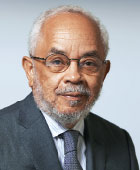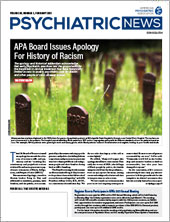I spent the first two and a half months of 2020 in Barbados. That is where, for those accustomed to it, the sun warms from the inside out. The night air is reassuringly cooled by the sea. Derek Walcott, the Caribbean poet, noted that in such places, a fierce thirst can transform iced water into a gasping benediction. It was easy to strike a pose of contentment in my island home, with the daily rhythms of life so easy and relaxed. I was in good health and in possession of enough resources to be confident that the next meal was assured. I was jogging several miles most afternoons at a public track located on the coast near the beach. Sunsets were full of vibrant colors occasionally punctuated by a rainbow. Not all the day’s hours were idle. I was home, and I could take delight in a mere drizzle. I had time to contemplate the blackbirds every morning trying to steal some crumbs fallen from my slice of coconut bread.
In mid-March 2020, things changed. I returned to New Haven, Conn., and life “up North,” as they say in the islands. A few days later, I confronted the lockdown. If Barbados had been fueling my feelings of immortality, the pandemic reawakened concerns of vulnerability. I remember the increasing attention to what I could do within the confines of a comfortable apartment: read, listen to music, write, make music with my steelpan, watch television, talk to family members, and think. Reading daily newspapers brought into sharp relief the fierceness of COVID-19. Accounts of the deaths among the religious in French monasteries were frightening. There was a special coldness about the pileup of coffins in New York and Italian cities that left bystanders gasping for air.
Claire Marin, a French philosopher, has had some recent thoughts about the changes caused by the pandemic. These were reported by Nicolas Truong (Le Monde, December 27, 2020) from an interview with the philosopher. Marin suggested that the sacrifices imposed by hardship and suffering at the hands of the pandemic might be attenuated by the benefits and improvements found in the new postpandemic reality. However, she recognized that there may not be a clear separation between the periods before and after the pandemic. Perhaps we may slip gradually into a new style of life, with calm periods and the occasional crisis. Marin theorized that we may simply have to prepare ourselves to live differently.
She did have specific concerns related to technological progress. We have all noticed the newly ubiquitous presence of videoconferencing, with its loss of eye contact and a sense of closeness. Gone may be the related recognizing of the other. She lamented the resulting impoverishment of human relationships, the diminished fluidity and spontaneity of human contact. She agreed that some of us may experience this sort of technological arrangement as a kind of liberation and may claim it increases work productivity. We may even boast that it facilitates multitasking. However, she warned of the potential conflating of private and professional spaces, intimate and social exchanges. Ultimately, our private lives will suffer.
Marin questioned the diminution of “presence” in these virtual interactions. She saw presence as a dynamic element, as attention and momentum toward the other. We know it as a factor in the relationship between doctor and patient. She pointed out that technological advances reduce geographical distances. They also may increase psychological distance. Another important consideration is that technological advancement in communication has put patients’ complaints too much in the public sphere, sometimes making the experience of illness humiliating and degrading. Marin recommended we take note of the changes, for better and for worse. Then, we must move cautiously in determining what we will keep, especially among those changes that affect working, caregiving, and the ways in which we relate to others. ■

